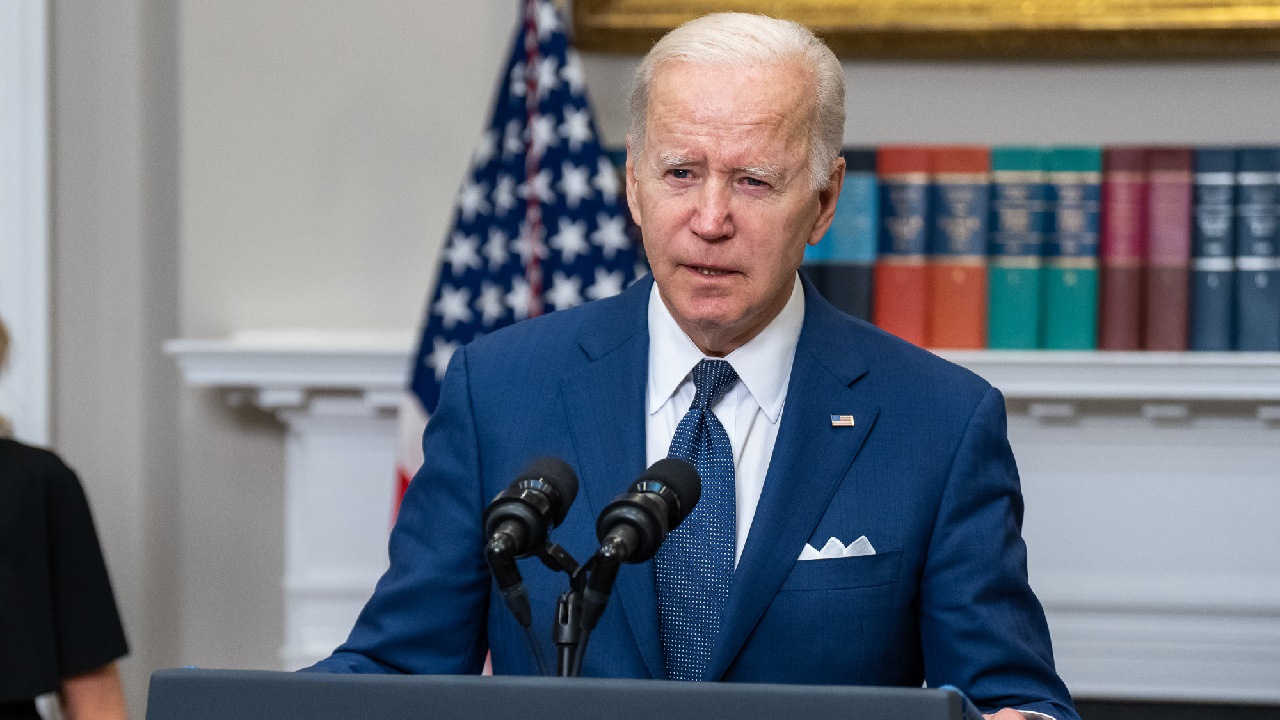It has now been more than a month since President Joe Biden’s marquee “US Africa Leaders Summit.” Joe Biden promised that the meeting would mark a real commitment to the continent and not just be a glorified photo opportunity. That would be welcome, considering how the summit’s iconic photo was Biden laughing and joking with Ethiopia’s Abiy Ahmed, Liberia’s George Weah, and Nigeria’s Muhammadu Buhari, respectively Africa’s bloodiest ruler, one of its most corrupt, and one of its greatest violators of religious freedom.
Unfortunately, Joe Biden and his national security team have since dropped the ball in five critical ways.
The first relates to the conference aftermath itself. Joe Biden signed many agreements during the summit and made other proposals. To coordinate follow-up, he appointed Johnnie Carson, a 79-year-old former assistant secretary of State for Africa. This was a curious move because it duplicated the role of current Assistant Secretary Molly Phee and National Security Council Senior Director Dana Banks. Regardless, in the weeks following his appointment, Carson has not traveled to Africa. It is unclear if he will in any sustained way.
The second problem relates to strategy rather than the symbolism of Carson’s lack of engagement. To his credit, Biden recognized early the problem Ethiopia’s civil war posed, and sent a series of envoys to seek its end. Phee worked assiduously in support of a ceasefire in Ethiopia’s war against its Tigray region. This culminated in November 2022 with an African Union-brokered agreement in Pretoria, South Africa. The ceasefire had a major flaw, though: It omitted mention of Eritrea, a totalitarian dictatorship responsible for some of the worst atrocities of the war. Eritrean forces continue to occupy Tigray, and openly loot the region.
Putting out the immediate fire should have been the end of the beginning rather than the beginning of the end. Rather than rehabilitate Abiy, to keep the fire from reigniting, Biden’s team should force Abiy into an honest dialogue about Ethiopia’s national compact: The war has set ethnic groups against each other and the younger generation today question the value of unity. Abiy is too arrogant to realize the peril in which he has put the country. Biden states “diplomacy is back” but when diplomacy is most needed, America goes silent. Biden may not realize it, but the clock is ticking, especially as Abiy partners with Eritrean President Isaias Afwerki to further their vendetta against the Tigray.
The third way Biden drops the ball involves climate. Biden’s team, like many others in Washington, use climate change as a catch-all framework to explore all African problems. Such attitudes absolve some African leaders from accountability for their own actions. Flooding countries with cash meant to combat climate change can also worsen corruption, undermine security and, ironically, undercut local environmental needs.
This leads to the fourth way in which Biden has failed in Africa. The elephant in the room during Biden’s Africa summit was China. For decades, the United States has taken Africa for granted and allowed Beijing to outcompete Washington for diplomatic and economic influence on the continent.
While Beijing excels at cultivating leaders, it has increasingly failed in its drive to cultivate hearts and minds. The younger generation of Africans may be ambivalent or even dislike the United States, but they resent Chinese exploitation even more. Downstream from almost every mining venture in which Chinese companies invest, young Africans die from polluted waters. Chinese diplomats address the problem by bribing host governments to look the other way, a strategy that, in the long-term, destroys state legitimacy. Rather than focus on climate change as a broad concept, Biden could help Africans in an immediate way by focusing attention on China’s rape of the environment, offering remedies to help clean up Beijing’s mess, and then helping match American businesses more respectful of the countries in which they operate.
The final issue on which Biden has disappointed in Africa is religious freedom. Secretary of State Antony Blinken inexplicably removed Nigeria, among the greatest violators of religious freedom, from its annual watch list for no clear reason. While he may believe such an olive branch encourages closer ties between the United States and Africa’s most populous country, the reality is that Nigeria’s leader sees such undeserved concessions as a green light for further anti-Christian violence against Nigeria’s Igbo. Such willingness to compromise on principle does not further diplomacy; it only erodes America’s brand. It is past time to reboot America’s Africa strategy in a sustained, strategic, and systematic way.
A 19FortyFive Contributing Editor, Dr. Michael Rubin is a senior fellow at the American Enterprise Institute, where he specializes in Iran, Turkey, and the broader Middle East. A former Pentagon official, Dr. Rubin has lived in post-revolution Iran, Yemen, and both pre- and postwar Iraq. He also spent time with the Taliban before 9/11. For more than a decade, he taught classes at sea about the Horn of Africa and Middle East conflicts, culture, and terrorism, to deployed US Navy and Marine units. Dr. Rubin is the author, coauthor, and coeditor of several books exploring diplomacy, Iranian history, Arab culture, Kurdish studies, and Shi’ite politics, including “Seven Pillars: What Really Causes Instability in the Middle East?” (AEI Press, 2019); “Kurdistan Rising” (AEI Press, 2016); “Dancing with the Devil: The Perils of Engaging Rogue Regimes” (Encounter Books, 2014); and “Eternal Iran: Continuity and Chaos” (Palgrave, 2005).

